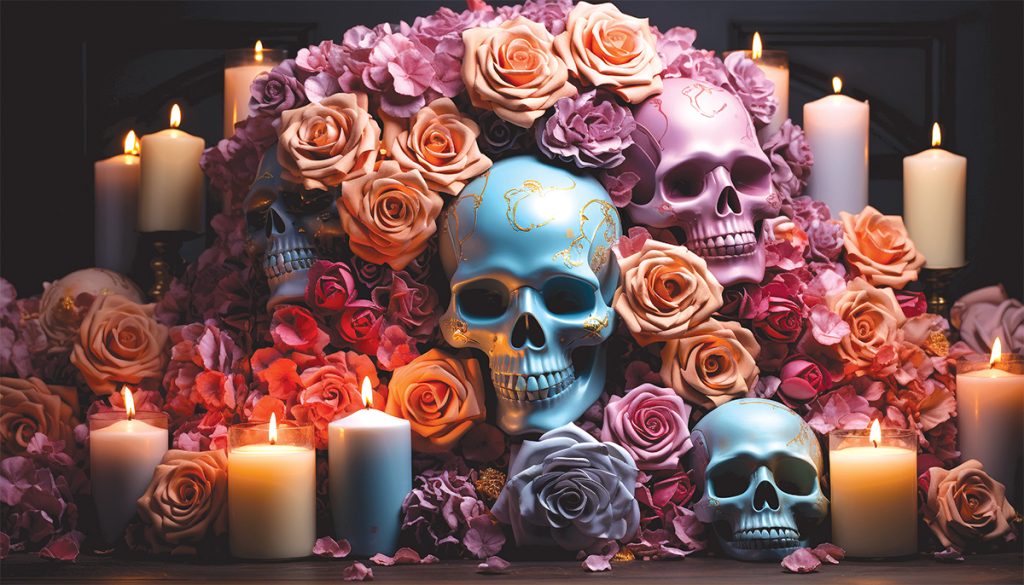
We are bombarded daily with images of violence and death whether it’s the nightly news, movies, or scrolling through social media. As uncomfortable as we claim it makes us, we flock towards the headlines, desperate for heart wrenching details. Where does this age-old fascination come from? In search of answers, I sought out an expert in the field. Dr. Melanie Cabrera is a Doctor of Psychology (PsyD), and has worked with youth, adults and families impacted by trauma and/or addiction for almost 15 years. Her approach to working with this population leans towards a humanistic/ existential perspective. The foundation of her work assumes that people have a natural desire to be the best version of themselves, and that their experiences can help them better understand themselves. One of her ongoing research endeavors focuses on the correlation between childhood trauma, perceived paranormal experiences, and a propensity for the morbid.
1. What is the attraction to death and why are we fascinated by it?
People tend to lean towards morbid curiosity. One doesn’t need to search hard to see that. From horror movies to fatal accidents on the highway, people are fascinated by death. Death itself is an enigma. No one can be certain what comes next, or even if there is a next at all. Subconsciously, many hope that there is a “next place,” whether that be heaven or a version of reincarnation. We hope to somehow have awareness, consciousness, in a place without conflict or strife. This fascination with death is our way of processing its uncertainty, so we watch the movies, revel in the horror novels, and watch the news with bated breath. We slow down on the highway when there is a crash, not out of respect, but to see if death is present. We want to know what is forever unknown until our own passing. In my work, as you might imagine, the concept of death comes up quite often. I see death anxiety surface in some of the younger clients who have experienced significant trauma (abuse, neglect, sudden death of a caregiver to overdose), but in older persons, including those who experienced trauma as a child, I see curiosity and an acceptance of death as part of life. For them, it’s no surprise that the majority are into horror movies, all things Halloween, and the paranormal. There’s no fear of death, necessarily. These outlets have instead become a comfort. So perhaps there are different reasons for the fascination in death. On one hand we have an uncanny drive to know what is next and on the other hand there is a quiet acceptance and comfort. In essence, the attraction is subjective.
2. What does it mean to study our own mortality?
Put simply, awareness and acceptance of our own mortality can lead us to live our life to the fullest. We have control over what our final life review will be if we ponder death, the impact that will have not just on us individually but on the world we will ultimately leave behind. Carl Jung, a founding existential psychologist, wrote of his experiences following a loved one’s death. As he was on a train, after hearing the news, all he heard were the sounds of celebration, music, and laughter – which, understandably, were quite perplexing. This led to Jung’s development of the archetypes, the psychological theory that human behavior is attributed to the mind’s archetypes – archaic forms of innate knowledge that constitute a universal, collective unconscious. Most important to this discussion is the revelation that we need to study our own mortality to accept it when death comes knocking. How you accept it is entirely up to you. I mentioned earlier that most early childhood trauma survivors have paranormal beliefs. They do not fear the concept of ghosts but understand that ghosts are just people who didn’t get to live. If I had to give any guidance in that regard, be curious, but make sure you live. •